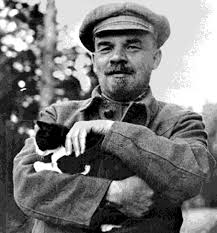Liam Ó Ruairc reviews a book about a far right British group.
 |
Mark Hayes is a former Anti-Fascist Action member and the author of the excellent 2014 book The Ideology of Fascism and the Far Right in Britain. His new book is about the National Action group which was banned under the Terrorism Act in 2016. This is a small book which could have been an extended journal article. The author does not only have the background of a committed anti-fascist activist, but is also well acquainted with the literature, arguments and source materials relating to the contemporary far right. The 144 references show that this piece has been thoroughly researched, including National Action publications the public will not be familiar with.
National Action is a small secretive British far-right organization founded in 2013. Close to half of the book is devoted to analysing the ideology of the organization. Mark Hayes concludes that it:
was self-evidently and unapologetically fascist and Nazi: romantic anti-rationalism, social Darwinism, aggressive nationalism (xenophobia), along with the emphasis on an authoritarian state and a disciplined society, the need for assertive dictatorial leadership, and a vague idea of a 'third way' beyond communism and capitalism, were combined with an adherence to cultural/ sociobiological racism – with a heavy emphasis on anti-Semitism. (page 43)
While none of this is particularly original for a group affiliated to Nazi politics, for Hayes:
The unique selling point for National Action was a combination of its youthful modern appearance, along with the adoption of high-profile, provocative methods, whilst nevertheless adhering steadfastly to traditional Nazi politics. (pp. 49-50)
While it could be argued that this is a very small group with marginal political impact, for Hayes its significance lies elsewhere:
National Action was not interested in growing, it was interested in intensifying – driving its members and supporters to extremity of ideology and action." (page 85)
The fact that members of the organization were convicted for a plot to murder the West Lancashire MP Rosie Cooper and a police officer is illustrative of this. This is why this group was considered to be a danger to the public and was proscribed by the British state.
There are three issues discussed in this book which this reviewer thought were the most interesting.
First, Hayes is very critical of the 2016 state ban of National Action, the first far-right group to be proscribed in the United Kingdom since the second world war. He argues that this will reinforce the repressive and coercive nature of the state. The state is thus able:
to effectively endorse the security agenda of those populist elements on the right of the political spectrum, which will in turn make it much easier for genuine fascist (and even Nazi) ideas to gain leverage. In short, an official state ban, aiming to prevent a 'vile ideology' in the name of liberal tolerance, may produce (in the longer term) precisely the opposite effect." (page 71).
Also, proscription in practice makes it harder for anti-fascists to oppose the far right.
Second, the book argues that fighting organizations such as National Action is an imperative "by any means necessary" and makes the point that "force is, on occasion, a viable and necessary option". (page 62) Hayes's defence of physical confrontation with groups like National Action will be controversial and will not go down well with the liberal left. (see pp. 59ff) Hayes advocates his ideas well, and these are very likely to stimulate discussion on what are the best means to combat groups such as National Action today.
Third, the author provides some interesting insights into 'anti-fascist research'. Mark Hayes argues that the Danish anti-fascist research group Redox provides one of the best example of what such research should be today:
Anti-fascists need to develop new competencies in research and monitoring. We believe it is an essential part of any anti-fascists movement that it be able to precisely and thoroughly know its enemy." (page 86)
This book is a very good example of such research and monitoring and will be of great interest to all anti-fascist militants and recommended to people studying contemporary Nazi groups.
Mark Hayes, 2019, The Trouble With National Action. London: Freedom Press, 100pp. ISBN 978-1-904491-34-7. £5.
⏭ Liam Ó Ruairc is the former co-editor of The Blanket.









